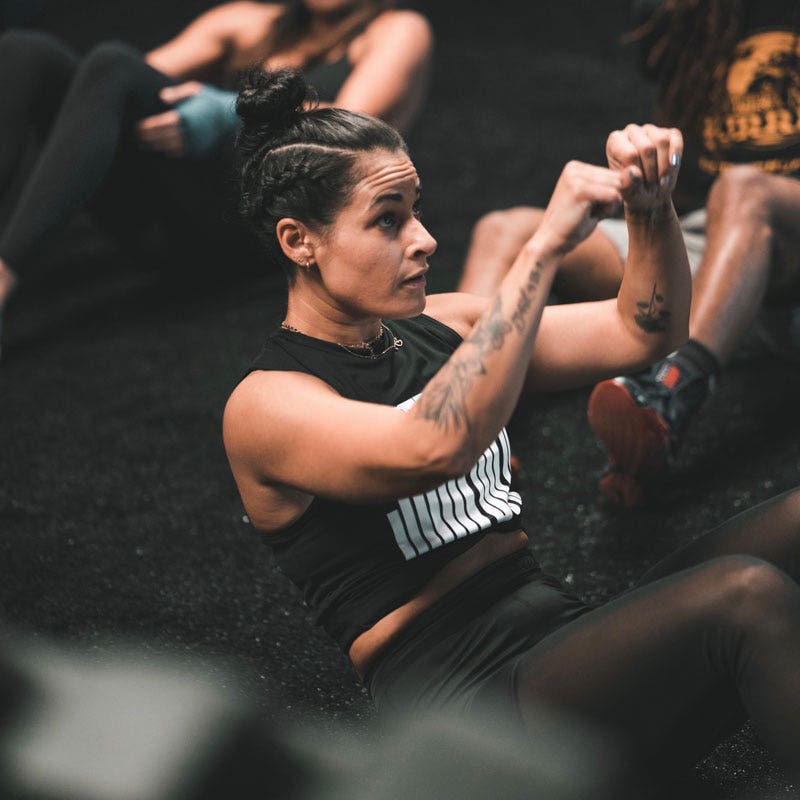Hi I’m Ashley Guarrasi, a Nike trainer and boxing coach based in Los Angeles. If you’ve read my previous blog post for ONE Bar, you know I love working hard and having fun! I get asked all the time about my fitness routine and how to prevent overtraining while still pushing hard. So let’s talk about overtraining—what it is and how to avoid it!
Overtraining is when a person exceeds their body’s ability to recover from overly strenuous exercise.
It is also described as chronic overwork-type training where someone may be training with too high intensity or high volume without allowing the body sufficient recovery time. Allowing your body time to rest and recover is such an important aspect of any exercise program—especially for high-level athletes, but it’s true for everyone.

Growing up as an athlete, I was always very competitive and pushed myself not only in my sports but in every aspect of life. I played two or three sports at one time and rarely gave my body time to rest. Similarly, when I got into training and fitness over 10 years ago, I went ALL IN. I never rested or took breaks… and now, I have started to feel the lingering effect of the intensity from my younger years.
As an adult, I’ve learned to slow down a bit and listen to my body.
I used to be able to train two to five hours a day without rest and still feel ok, whereas now I need at one or two rest days in my routine. I make sure that in any of my exercise programs, I provide the body time to repair and strengthen itself in between workouts.
When working with clients over the years, I’ve stressed three things when it comes to avoiding overtraining:
1. Listen to your body!
The most important thing is to pay attention to what your body is telling you and how it feels. Once you’ve been working out consistently for a while, you’ll know when your body wants to keep working and when it needs a little break. Don’t ignore these hints!
2. It’s ok to rest.
Don’t feel like you’re cheating yourself or not giving 100% if you need a rest day—or even a couple days. You will be able to work harder and longer and have better workouts when you come back to the gym and your body is properly rested.
3. Change things up!
It is very important to do different types of training and workouts. Cross training includes low-impact activities like bike riding and swimming that provide the benefits you need without putting more stress on your joints. The benefits of cross training are great and help a lot when it comes to not overtraining the body, because you are not doing the same motions or workouts repeatedly.
Overall, it is good to exercise and train in moderation and do what’s best for your body and lifestyle.
The most important thing is to move, feel great and not to overdo it.
Over the years I’ve spent juggling boxing, clients and strength training, I still find it very easy to overwork myself or overtrain… but I am slowly learning how to find balance. Mind and body.
Enjoy life, be active, be fit, be well.







